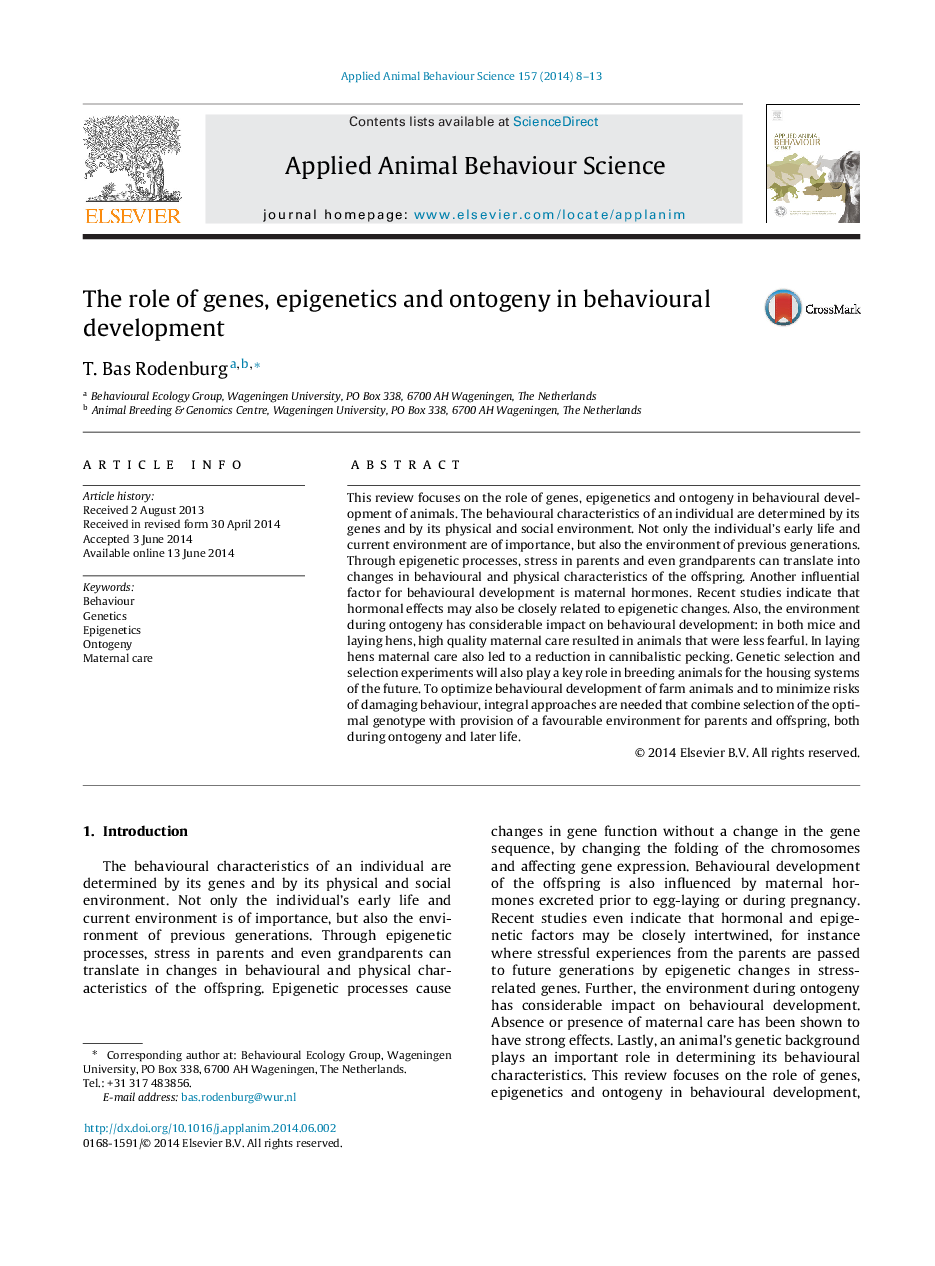| Article ID | Journal | Published Year | Pages | File Type |
|---|---|---|---|---|
| 6379663 | Applied Animal Behaviour Science | 2014 | 6 Pages |
Abstract
This review focuses on the role of genes, epigenetics and ontogeny in behavioural development of animals. The behavioural characteristics of an individual are determined by its genes and by its physical and social environment. Not only the individual's early life and current environment are of importance, but also the environment of previous generations. Through epigenetic processes, stress in parents and even grandparents can translate into changes in behavioural and physical characteristics of the offspring. Another influential factor for behavioural development is maternal hormones. Recent studies indicate that hormonal effects may also be closely related to epigenetic changes. Also, the environment during ontogeny has considerable impact on behavioural development: in both mice and laying hens, high quality maternal care resulted in animals that were less fearful. In laying hens maternal care also led to a reduction in cannibalistic pecking. Genetic selection and selection experiments will also play a key role in breeding animals for the housing systems of the future. To optimize behavioural development of farm animals and to minimize risks of damaging behaviour, integral approaches are needed that combine selection of the optimal genotype with provision of a favourable environment for parents and offspring, both during ontogeny and later life.
Related Topics
Life Sciences
Agricultural and Biological Sciences
Animal Science and Zoology
Authors
T. Bas Rodenburg,
